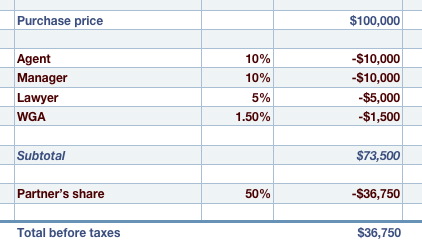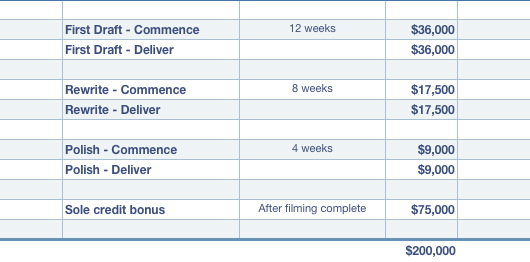I handed in a script today, and thought it might be helpful to talk through my best practices when finishing up a draft. I don’t always do all of these — but I get nervous if I’ve skipped one.
1. Print it out.
=====
There are mistakes you’re only going to catch on paper. So print it. I like to do two-up (side-by-side) printing to save paper, but your eyes might prefer full size.
Circle mistakes with a colored pen so you’ll see them. In addition to typos, look for any bit of redundant description or needless fluff. You can almost always squeeze a page out of a 120-page script.
2. Make changes all at once.
=====
It’s tempting to fix mistakes as you catch them, but you’re likely to miss things if you’re constantly switching between error detection and error correction. Sit at the computer and go through page by page, fixing each problem you’ve found. As you go, you may spot ways to improve page breaks and other formatting niceties.
3. Fix the title page.
=====
This is the step I often forget, resulting in mis-dated drafts and re-exported .pdfs. If I’m doing multiple versions of a draft — for example, one with starred changes, one without, I’ll make sure the title page indicates this.
4. Save this draft and email it to yourself.
=====
Yes, you should have multiple backup strategies. But the self-addressed email will always work, and can be accessed from wherever you find yourself.
5. Export a .pdf — then check it.
=====
These days, you almost always “hand in” a draft as a .pdf by email. But make sure it actually looks right, complete with title page. If you’re friendly with the assistant on the other end, ask her to check if there’s anything you’re at all worried might print strangely, such as a title page font ((Yes, you can use a font other than Courier for the title page. But I rarely do anymore.)) or starred changes in the right margins.

